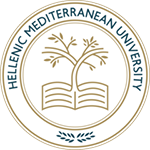Detailed introduction of Hellenic Mediterranean University:
Introduction and Overview
Hellenic Mediterranean University is a public higher education institution in Greece, headquartered in Heraklion, Crete, with branches in Chania, Rethymno, Agios Nikolaos and Sitia. The school offers high-quality undergraduate and postgraduate courses covering a wide range of fields including engineering, health, agriculture, food, economics, management and environment.
History and Establishment
The university was established on April 25, 2019, and was transformed from the former Crete Technical Educational Institute. However, the former Crete Technical Educational Institute has a history of about 40 years.
School Strength
Faculty: It has about 400 qualified academic and technical personnel.
Academic Research: It has outstanding performance in research and innovation. Its academic and research personnel have extensive cooperation with domestic and foreign research teams, have achieved remarkable research results, and have developed innovative products with international recognition. It has focused on and actively invested in cutting-edge research fields such as engineering, health sciences, environmental and material sciences, economics and social sciences.
International cooperation: Student exchange programs with more than 100 foreign universities provide students with broad international exchange opportunities.
Nature of the institution
Public university, funded and managed by the Greek government.
Educational philosophy
Aims to provide a well-structured and efficient learning curriculum to ensure that students can successfully find employment after graduation; focus on research and innovation and lifelong learning, provide high-quality technical and consulting services; actively encourage students to participate in research and development projects, and cultivate students' practical ability and innovative spirit.
Key laboratories and disciplines
Key laboratories: The newly established Department of Electrical and Computer Engineering has seven laboratories, including the Energy and Photovoltaic Systems Laboratory, the Center for Materials Technology and Photonics, the Applied and Interactive Computing Laboratory, the Media, Network and Communication Laboratory, the Intelligent Systems and Computer Architecture Laboratory, the Applied and Computational Mathematics Laboratory, the Artificial Intelligence and Systems Engineering Laboratory, etc. These laboratories are internationally recognized for high-quality scientific research and innovative applications in the fields of electrical, electronic, nanotechnology, information and communication.
Key disciplines: It has certain advantages and characteristics in the fields of engineering, health sciences, agriculture, etc. For example, the Department of Electrical and Computer Engineering has outstanding achievements in related research and teaching, and the nursing and agricultural majors have also developed well.
Faculty
The school has five colleges, namely the College of Agriculture, the College of Management and Economic Sciences, the College of Health Sciences, the College of Engineering, and the College of Music and Audiovisual Technology. Each college has several professional departments. Some are as follows:
College of Agriculture: Department of Agriculture, etc.
College of Management and Economic Sciences: Department of Business Administration and Tourism, Department of Management Science and Technology, Department of Accounting and Finance, etc.
College of Health Sciences: Department of Nutrition and Dietetics, Department of Social Work, Department of Nursing, etc.
College of Engineering: Department of Electrical and Computer Engineering, Department of Electronic Engineering, Department of Mechanical Engineering, etc.
College of Music and Audiovisual Technology: Department of Music Technology and Acoustics, etc.
Ranking
It is a high-ranking university in Greece, with a high ranking in research publications, and its impact index exceeds the global average.
Expenses
Tuition fees at Greek public universities are relatively low. Undergraduate courses are generally around 500-1000 euros per semester, and graduate courses are about 800-1500 euros per semester. The specific fees vary depending on the major.
Campus Environment
Teaching Facilities: Each campus is equipped with modern classrooms, laboratories, libraries, computer centers and other teaching facilities to provide students with good learning conditions.
Living Facilities: The school provides students with dormitories, canteens, sports facilities and other living facilities to meet students' daily needs.
Natural Environment: Located in Crete and other places, the campus is surrounded by beautiful natural environment, beautiful beaches and charming Mediterranean scenery, providing students with a comfortable learning and living environment.
-
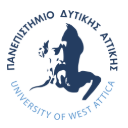
University of West Attica
-

Technical University of Crete
-

International Hellenic University
-
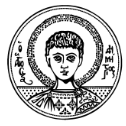
Aristotle University of Thessaloniki
-
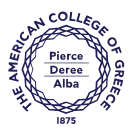
The American College of Greece
-
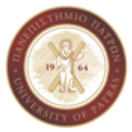
University of Patras
-

University of Ioannina
-

Democritus University of Thrace
-

Hellenic Open University
-
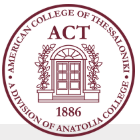
American College of Thessaloniki
-

Mesoamerican University
-

Istmo University
-

Mariano Galvez University of Guatemala
-

Regional University of Guatemala
-

Galileo University
-

Francisco Marroquín University
-

Rafael Landívar University
-

University of the Valley of Guatemala
-

University of San Carlos of Guatemala
-

Technological Institute of Tlaxcala Plateau
-

Golfo University
-

Technological University of South Sonora
-

Technological University of Huejotzingo
-

Tizimín Institute of Technology
-

Chilpancingo Institute of Technology

